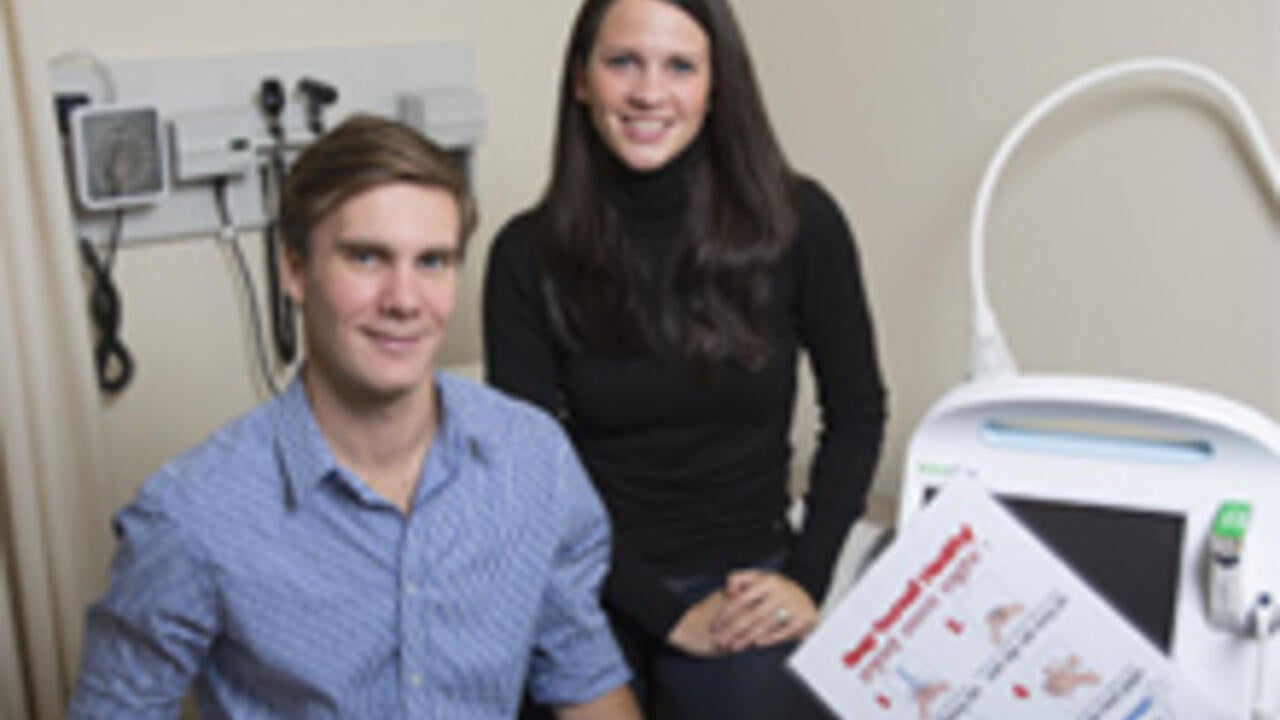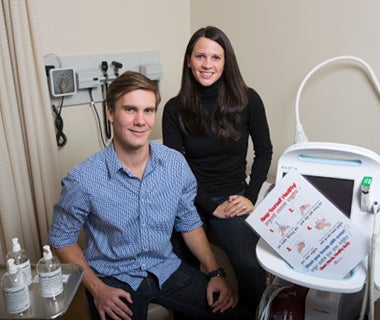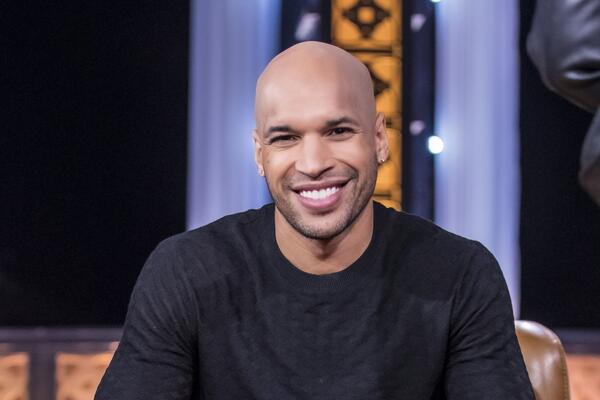
Waterloo’s social entrepreneurs help children in Nepal
Sick children in Kathmandu are receiving improved care thanks to medical equipment and volunteers sent through BABU

Sick children in Kathmandu are receiving improved care thanks to medical equipment and volunteers sent through BABU
By Carrie Gabla Office of Advancement
Lana Vanderlee and Andrew Mitchell went to Nepal to volunteer but it didn’t take long for them to discover a serious problem:
“Very sick children and babies were waiting hours and sometimes days to receive specialized care,” says Vanderlee, a PhD student in the School of Public Health and Health Systems. “At times, health-care workers didn’t have the equipment to treat severely ill children. Due to a lack of health education, many families wait until their child is very sick before taking them to hospital.
“We wanted to help change that.”
Vanderlee and Mitchell, a PhD student with the Department of Kinesiology, asked Dr. Shanta Chandra Shakya, who was building a private children’s hospital in Kathmandu, how they could help. Shakya told them the new International Friendship Children’s Hospital (IFCH) would need donations of new and used medical equipment as well as volunteer health-care workers.
Volunteer medical students
Dr. Shakya wanted to bring volunteer medical students to Nepal who were eager to exchange knowledge and expertise with local health-care professionals,” explains Vanderlee.
So, Vanderlee and Mitchell, along with colleagues Hamid Izadi and Eric Cheng, created a non-profit organization called Bringing About Better Understanding, or BABU, a Nepali term meaning “little boy.” The Waterloo students will be speaking at a special event on campus on Nov. 13 to mark National Philanthropy Day.
To date, BABU has coordinated donations of ventilator equipment, surgical supplies, dental equipment and hand hygiene supplies. It has also sent more than 70 health-care volunteers to IFCH and other facilities in Nepal.
“The people of Nepal have welcomed us with open arms,” says Mitchell. “Complete strangers have become friends - doctors and others - who are not driven by financial reward, but rather a genuine desire to make life better for kids.”
The success of BABU has challenged its creators to think globally. “Colleagues in Belgium were eager to partner with us, and now BABU Belgium takes vaccination programs into schools and orphanages in Kathmandu. We are thrilled with the difference BABU is making in Nepal. Who knows where we can take it next?”

Read more
Alum and founder Marc Lafleur shares how his entrepreneurship playbook has changed since selling his first company

Read more
Sport and Recreation Management student Diane Choi embarks on co-op term with the Canadian Olympic Committee

Read more
Redefining capstone learning by bringing students, faculty and community partners together to tackle real-world challenges
The University of Waterloo acknowledges that much of our work takes place on the traditional territory of the Neutral, Anishinaabeg, and Haudenosaunee peoples. Our main campus is situated on the Haldimand Tract, the land granted to the Six Nations that includes six miles on each side of the Grand River. Our active work toward reconciliation takes place across our campuses through research, learning, teaching, and community building, and is co-ordinated within the Office of Indigenous Relations.